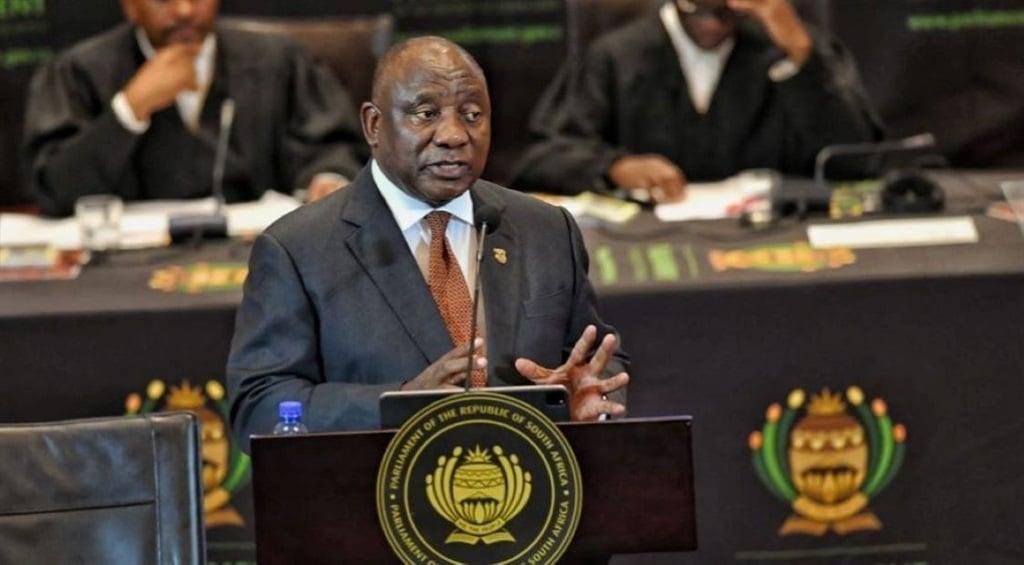Africa-Press – South-Africa. President Cyril Ramaphosa has announced a raft of new measures to combat the country’s “existential” power crisis, including the declaration of a state of disaster, a new electricity minister, and loans and incentives to move South Africans onto solar energy.
In his State of the National Address on Thursday night, the president said that to deal with the crisis, “we need a single point of command and a single line of march”.
“The National Disaster Management Centre has consequently classified the energy crisis and its impact as a disaster. We are therefore declaring a national state of disaster to respond to the electricity crisis and its effects,” the president said.
South Africa had over 200 days of load shedding in 2022, and not a single day without cuts since the beginning of 2023.
Ramaphosa said the state of disaster, which began with immediate effect, would help with measures to “support businesses in the food production, storage and retail supply chain, including for the rollout of generators, solar panels and uninterrupted power supply”.
Critical infrastructure such as hospitals and water treatment plans would be exempt from load shedding.
Electricity minister
The president said that to deal with the crisis, he was appointing a minister of electricity in the presidency to “assume full responsibility for overseeing all aspects of the electricity crisis response”.
“The minister will focus full-time and work with the Eskom board and management on ending load shedding and ensuring that the energy action plan is implemented without delay.”
He later clarified that minister would “day and night just be focusing on this crisis we are dealing with”.
The minister of public enterprises will, however, still remain the shareholder representative of Eskom.
Incentives and subsidies
Ramaphosa said that, as per his energy plan announced last year, government was “going to proceed with the rollout of rooftop solar panels”.
“In his budget speech, the minister of finance will outline how households will be assisted, and how businesses will be able to benefit from a tax incentive,” Ramaphosa said.
On Tuesday SA Revenue Service Commissioner Edward Kieswetter said that the tax authority had been “engaged already by colleagues in the Treasury to say we should be reviewing additional measures to provide some relief and incentive for people to make an investment in their own become a little bit more self-sufficient”.
The president also announced on Thursday that the Covid-19 “bounce back” loan scheme government announced last year, to help business recover from the pandemic, would now be used to assist them in getting funding for solar power.
“National Treasury is working on adjustments to the bounce back loan scheme to help small businesses to invest in solar equipment, and to allow banks and development finance institutions to borrow directly from the scheme to facilitate the leasing of solar panels to the customers,” the president said.
Treasury previously hoped that that the scheme would also help businesses recover from the flooding in KwaZulu-Natal and the July 2021 unrest in that province and Gauteng.
Although it is still unclear what the adjustments to the scheme will be, currently only businesses with a maximum turnover of R100 million per annum qualify. Businesses can approach banks, SME finance providers or development finance institutions to borrow between R10 000 and R10 million.
Diesel
Ramaphosa also mentioned in his address that “government will support Eskom to secure additional funding, to continue purchasing diesel for the rest of the financial year”.
“This should reduce the severity of load shedding as Eskom will be able to use its diesel-run plants when the system is under strain,” the president said.
In December, Eskom declared that it had run out of money to buy more diesel, having spent R12 billion, overshooting its annual budget by more than 100%.
News24 reported in January that a stand-off between Eskom and the National Treasury over funding for diesel ended with an agreement that government would support Eskom borrowing from commercial banks, should it be unable to reprioritise its own resources.
Burning diesel at its Open-cycle Gas Turbine Power plants allows Eskom to reduce load shedding by two stages for around six hours a day during peak times.
For More News And Analysis About South-Africa Follow Africa-Press






